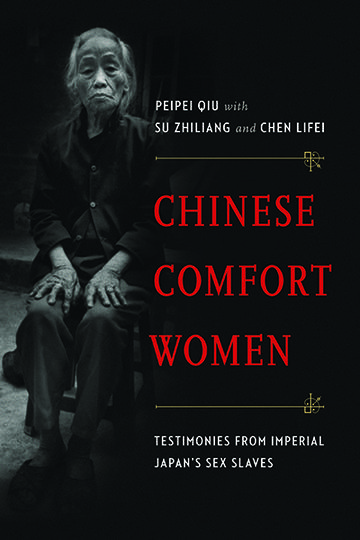About BC Books Online
BC Books Online was created for anyone interested in BC-published books, and with librarians especially in mind. We'd like to make it easy for library staff to learn about books from BC publishers - both new releases and backlist titles - so you can inform your patrons and keep your collections up to date.
Our site features print books and ebooks - both new releases and backlist titles - all of which are available to order through regular trade channels. Browse our subject categories to find books of interest or create and export lists by category to cross-reference with your library's current collection.
A quick tip: When reviewing the "Browse by Category" listings, please note that these are based on standardized BISAC Subject Codes supplied by the books' publishers. You will find additional selections, grouped by theme or region, in our "BC Reading Lists."
Chinese Comfort Women is the first English-language book featuring accounts of the “comfort station” experiences of women from Mainland China, forced into sexual slavery by the Japanese military during the Asia-Pacific War. Through personal narratives from twelve survivors, this book reveals the unfathomable atrocities committed against women during the war and correlates the proliferation of “comfort stations” with the progression of Japan’s military offensive. Drawing on investigative reports, local histories, and witness testimony, Chinese Comfort Women puts a human face on China’s war experience and on the injustices suffered by hundreds of thousands of Chinese women.
Peipei Qiu is a professor of Chinese and Japanese, Louise Boyd Dale and Alfred Lichtenstein Chair in Modern Languages, and the director of the Asian Studies Program at Vassar College. Su Zhiliang is a professor of history, the dean of the Faculty of Humanities and Communication, and the director of the Research Center for Chinese “Comfort Women” at Shanghai Normal University. Chen Lifei is a professor of journalism, the chair of the Department of Publishing and Media Studies, and the deputy director of the Center for Women’s Studies, both at Shanghai Normal University.
- Winner, Chinese American Librarians Association (CALA) Best Book Award for Non-fiction, Chinese American Librarians Association
This is an important book that signals fundamental shifts in understandings of the Japanese military’s use of “comfort women” in Asia during the Second World War. To date, most discussion of “comfort women,” the English translation of the Japanese euphemism ianfu, has focused on roughly 200,000 Korean and Japanese nationals. This volume sheds light on the suffering of an approximately equal number of Chinese women who were forcibly drafted by the Japanese military and whose experiences were silenced for decades. It is the first English-language monograph to record the memories of Chinese women at the “comfort stations” and it does a fine job of introducing these important findings to international audiences..One of the great strengths of this work is the demonstration that these women’s suffering continued long after the Japanese military was defeated and the war ended...Chinese Comfort Women does an excellent job of linking these women’s lives to forces that darkened much of China’s tortuous twentieth century yet remain far too little understood.



